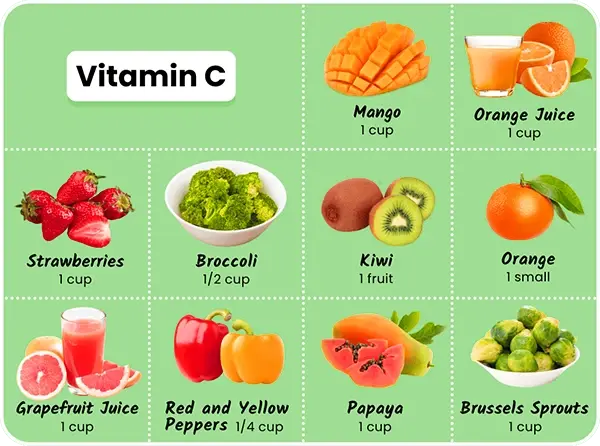
Plant-Based Vitamin C Supplements: The Stylish Guide to Nature’s Immune Boost
Discover the benefits of plant-based Vitamin C supplements and why they’re a smarter choice than synthetic alternatives. From acerola cherries to camu camu berries, these natural sources offer Vitamin C alongside powerful antioxidants and bioflavonoids for better absorption and gentler digestion.
Why Your Body Craves Vitamin C—And Why Plants Do It Best
Think of Vitamin C as the quiet designer label in your wellness wardrobe. You may not always notice it, but without it, things fall apart. It keeps your immune system sharp, helps your skin glow, and even supports faster muscle recovery after a tough workout. But here’s the catch: your body can’t make it. Every drop of Vitamin C has to come from what you eat—or in today’s world, from supplements.
And here’s where the smart shift is happening. More people are choosing plant-based Vitamin C supplements over synthetic ones. They’re drawn to nature’s own blueprint—nutrients packaged with bioflavonoids, antioxidants, and the subtle extras that lab-made pills often skip. This post is your insider’s guide to why plant-based Vitamin C deserves a prime spot in your health routine, how to choose the best supplement, and which natural sources are worth your attention.
What Exactly Is Plant-Based Vitamin C?
Unlike synthetic Vitamin C (ascorbic acid made in a lab, usually from corn syrup), plant-based Vitamin C comes from concentrated whole foods—think acerola cherries, camu camu berries, amla, rose hips, and citrus fruits.
The key difference? Nature doesn’t deliver nutrients in isolation. A capsule of acerola cherry extract, for example, comes bundled with phytonutrients and bioflavonoids that improve absorption and work in harmony with Vitamin C. Research published in the National Library of Medicine shows that Vitamin C paired with plant compounds enhances its bioavailability, meaning your body uses it better.
Benefits of Plant-Based Vitamin C Supplements
1. Stronger Immunity
Plant-based Vitamin C keeps your immune defenses alert. It supports white blood cells, helps shorten the duration of colds, and strengthens your body’s barrier against infections.
2. Skin That Glows from Within
Vitamin C is a collagen co-pilot. Without it, your body can’t produce collagen efficiently. That means dull skin, weaker joints, and slower healing. Plant-based options also come with antioxidants that help fight oxidative stress—think of it as skincare you can swallow.
3. Gentle on the Stomach
Synthetic Vitamin C, especially in higher doses, can upset digestion. Plant-based Vitamin C, buffered with natural compounds, tends to be easier on your gut.
4. More Than Just Vitamin C
Here’s the insider advantage: whole-food sources like amla and camu camu bring extra polyphenols, tannins, and antioxidants into the mix—nutrients you won’t find in a lab-only version.
Comparing Plant-Based vs. Synthetic Vitamin C
| Feature | Plant-Based Vitamin C | Synthetic Vitamin C |
|---|---|---|
| Source | Fruits & plants (acerola, camu camu, amla) | Lab-made (usually from corn syrup) |
| Nutrient Profile | Vitamin C + phytonutrients & bioflavonoids | Pure ascorbic acid |
| Absorption | Higher (synergistic compounds aid uptake) | Good, but isolated |
| Digestive Comfort | Gentle, less irritation | May cause stomach upset |
| Longevity in Body | Slower release, more sustained | Faster spike, quicker excretion |
Top Natural Sources Used in Supplements
Acerola Cherry
Tiny but mighty. Acerola cherries pack up to 30 times more Vitamin C than oranges. Supplements often use acerola extract because it’s potent and rich in antioxidants.
Camu Camu
This Amazonian berry is the luxury edition of Vitamin C—one teaspoon of powder contains up to 700% of your daily recommended intake.
Amla (Indian Gooseberry)
Used in Ayurveda for centuries, amla isn’t just about Vitamin C. It also helps balance digestion and improves hair and skin health.
Rose Hips
Often overlooked, rose hips are the fruit of the rose plant and provide Vitamin C plus carotenoids and flavonoids. They’re especially good for joint health.
How to Choose the Best Plant-Based Vitamin C Supplement
Not all supplements are created equal. Here’s what to check before adding one to your cart:
- Source Transparency: Look for labels that clearly state the fruit or plant extract used.
- No Fillers: Skip supplements with unnecessary additives or artificial binders.
- Bioflavonoids Included: These plant compounds boost Vitamin C absorption.
- Capsule vs. Powder: Powders (like camu camu) let you control dosage, but capsules are convenient for daily use.
- Trusted Brands: Stick with companies that provide third-party testing or certifications for purity.
Daily Needs: How Much Vitamin C Do You Really Need?
The recommended daily intake of Vitamin C varies:
| Group | Recommended Daily Amount |
|---|---|
| Adult Women | 75 mg |
| Adult Men | 90 mg |
| Smokers | +35 mg |
| Pregnant Women | 85 mg |
| Breastfeeding Women | 120 mg |
Keep in mind: plant-based Vitamin C supplements often provide 250–1,000 mg per serving, making them more than enough to cover your daily needs.
Are Plant-Based Vitamin C Supplements Worth It?
Here’s the truth: both synthetic and natural Vitamin C will boost your levels. But if you’re after a supplement that feels more aligned with a whole-food lifestyle—one that’s easier to digest, better absorbed, and carries added health perks—plant-based options are worth the investment. Think of it as the difference between wearing a tailored suit versus an off-the-rack version. Both cover you, but one fits better and lasts longer.
Final Thoughts
Plant-based Vitamin C supplements aren’t just about avoiding synthetics—they’re about choosing a smarter, more holistic approach to wellness. They bring nature’s extras to the table, from antioxidants to bioflavonoids, making your supplement more than just Vitamin C.
If you’re ready to upgrade your daily health routine, consider exploring options made with acerola, camu camu, or amla. Your immune system, skin, and energy levels will thank you.
FAQs
1. Are plant-based Vitamin C supplements more expensive?
Yes, usually—but you’re paying for higher-quality sourcing, added plant compounds, and often better absorption.
2. Can I take too much Vitamin C?
Yes. Doses above 2,000 mg a day may cause digestive discomfort. Stick to recommended dosages unless directed by a doctor.
3. Are they vegan-friendly?
Most plant-based Vitamin C supplements are vegan, but always check the capsule ingredients—some use gelatin.
4. Is plant-based Vitamin C better for skin?
Yes, because the added antioxidants help protect against oxidative stress, which contributes to aging.
5. Can I skip supplements if I eat enough fruits and veggies?
If your diet is consistently rich in Vitamin C foods, you might not need a supplement. But supplements are helpful insurance when life (or your diet) isn’t perfect.
Leave a comment
Your email address will not be published. Required fields are marked *


